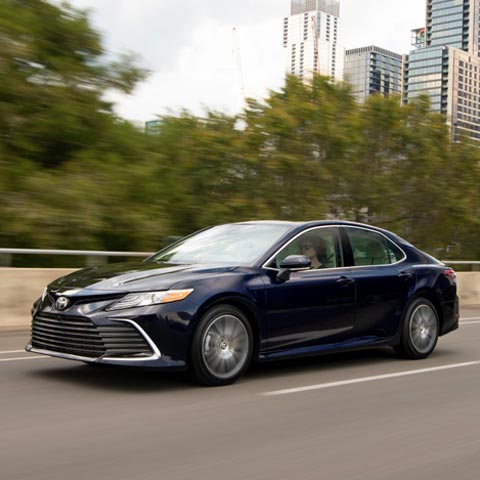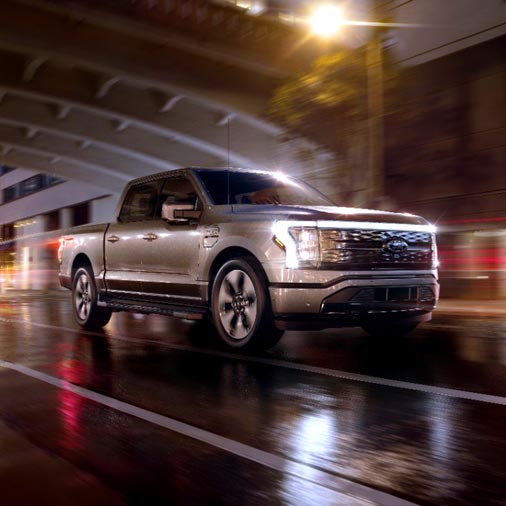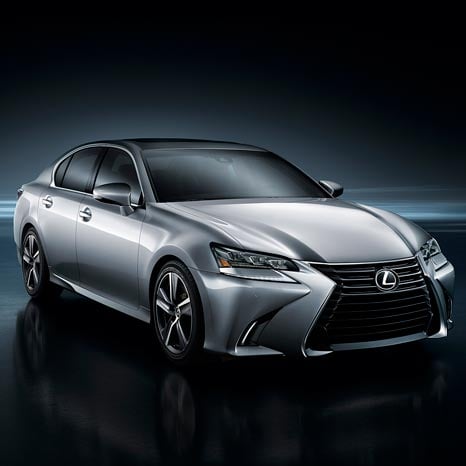What is a Good Credit Score for a Car Loan?

A good credit score is critical to getting an auto loan with reasonable rates and terms.
Published on January 8th, 2021. Last Updated on .
The better your credit score, the less expensive your monthly payments will be. Credit scores generally range between 300 and 850. There is no specific number that you need to qualify for an auto loan, but the better your score, the lower your loan interest rate and the more loan options you will have. In this article, we will give you some guidance on what you can expect for a car loan with your current credit score.
Preparation Before Applying for an Auto Loan
One thing that you must do before you you apply for an auto loan, is to get a copy of your credit report. The Federal Trade Commission (FTC) states that consumers are entitled to one free credit report every 12 month from each of the 3 major credit rating companies. Details and guidance from the FTC is here. You can apply for a free credit report via the FTC website, directly from any of these three companies below, or just Google “free credit report” to see many other options available to you.
https://www.equifax.com/personal/credit-report-services/free-credit-reports/
https://www.experian.com/consumer-products/free-credit-report.html
https://www.transunion.com/annual-credit-report
You do not need to get credit reports from all three of the credit rating companies, as they will all likely have the same information on your credit history. With your credit report, you will want to take a close look at all of the entities that you previously had credit with, or have credit with now. This will include mortgages, credit cards, auto loans, bank accounts, or and just about any company that has allowed you to finance the purchase of anything. This will even include any student loans that you have taken, as that is an important piece of your credit history, and credit score.
The importance of this exercise is to make certain that your report is ACCURATE!!! One of the worst things that can happen when you apply for a car loan, is to have some erroneous items on your credit report. This would include a report that show that you still have a loan balance, even though you paid that item off. Or, that perhaps someone else’s loan or credit information made it onto your credit report by accident. These errors occur all the time, so it is best to clear up any errors before applying for any new loans.
How Does Your Credit Score Compare to Others?
All credit rating agencies calculate your credit score in slightly different manners, so your score with one company will be slightly different than with another company. But, they should all be in the same range, provided that there are no errors on your various reports (as mentioned above). While there is no bright line that differentiates a good credit score from a bad one, the credit rating agency Experian categorizes scores into the following groups:
| Credit Score | Credit Rating | % of Population |
|---|---|---|
| 300 – 579 | Very Poor | 16% |
| 580 – 669 | Fair | 17% |
| 670 – 739 | Good | 21% |
| 740 – 799 | Very Good | 25% |
| 800 – 850 | Exceptional | 21% |
Loan Application Outcome with a score between 300 and 579 (Very Poor)
With a credit score in this range, it will be very difficult for you to get a used auto loan. It will be almost impossible to get a new car loan. If you are able to get a loan, the expectation is that you will only make a few payments before you become late, or stop paying altogether. It is also expected that the lender, in this case the dealer itself, may have to repossess your vehicle. In these instances, the dealer is hoping to get a big down payment from you, and then repossess the vehicle to sell to someone else. If you are able to get a loan (likely from a local used car lot), it will be with very bad payment terms. You will be asked to provide a substantial portion of the value of the car as a down payment. Your interest rate will also be extremely high—certainly 10% or greater. The paperwork will also say that the seller can take your car if you become too late in your payments (repo). If your credit score is in this range, try to find a less expensive car, so that you don’t put yourself in unfortunate financial position that you can’t get out of. If you’re not able to make the payments, your credit score will just become worse—and you don’t want that.
Loan Application Outcome with a score between 580 and 669 (Fair)
With a credit score in this range, you will likely be able to get a used car loan, and it is possible to get a new car loan. In both instances, the terms of the loan will not be attractive. Although not as bad as the terms mentioned above, the seller of the vehicle (or the financing company) wants to make certain that they are protected on their loan. While the lender doesn’t expect that you will be slow making payments, or will stop completely, they want to ensure that your loan doesn’t become a loss on their books. The financing company will want to see you put down a sizable down payment (20% or greater), and the interest rate will be high (8% or more). In these instances, be careful of the dealer offering you a high-interest loan for an extended period of time (6 years or more), as you’ll be stuck will payments that likely outlast the life of your car, and the payoff on the loan will almost always be greater than the value of the car itself. If you can, try to come up with as much down payment as possible, or look for a lower-priced car. DO NOT extend your loan term to 7, 8, or 9 years, just to get your monthly payments down. That is a recipe for a bad outcome for you, and you’ll end up paying 2X the price of the car by the time the loan is paid off.
Loan Application Outcome with a score between 670 and 739 (Good)
With a credit score in this range, you should be able to secure either a new car or used car loan with reasonable terms. If you have a credit score around 700, you’ve done a reasonably good job managing your finances, and should be able to get an auto loan with terms that are not too bad. Expect to have to put down 10-20% of the price of the vehicle as a down payment, and expect to have an interest rate that is in the 7-10% range. As mentioned above, be very careful not to extend the term of your loan, just to lower the monthly payments. If you have to get a term that is 6 years or longer to reasonably afford your monthly payments, you should think about getting a less expensive car. You will want to avoid buying a brand new car, and may want to look at vehicles that are at least 2 or 3 years old, and have already depreciated by a lot. Your credit rating is also good enough, that you can shop around for a better financing deal, either through your local bank, credit union, or other dealerships.
Loan Application Outcome with a score between 740 and 799 (Very Good)
With a Very Good credit score, you won’t have any trouble getting a new or used car loan. Your goal now is to get the BEST loan you can find. As mentioned above, look over your credit report before you start your process, to make certain that your credit report reflects everything that is appropriate. If you recently paid off a car loan, see if your credit report reflects that. If not, call your prior lender and nudge them a little to have that information updated—sometimes they forget to do this. With your credit history, you can expect to have to make little (5-10%) down payment for either a new or used car. Your interest rate should certainly be under 5%, and if you are buying a new car, you should qualify for any advertised or promotional rates being offered by the dealer or manufacturer. Even though your credit is good, keep it that way by not buying more car than you can afford, and make certain that you don’t opt for a 6-year loan or longer, just to get your payments down.
Loan Application Outcome with a score between 800 and 850 (Exceptional)
If you’re here, you’re good. You can basically get a loan on whatever car you want, provided that your income history supports it. When buying a used car or ordering a new car, you may be asked to provide a small down payment, but that is more to get you committed to the purchase, versus the dealer or lender having concerns that you won’t make your monthly payments on time. With credit this good, assume that you will get the most favorable rates available, and focus more on your purchase price. Here’s an insider hint---even if you don’t need to finance your vehicle, go ahead and finance it anyway, if the rate is 2% or less. You will likely be eligible for additional manufacturers incentives if you finance, and the dealer will get paid for signing you up as a new borrower. Knowing this, the dealer may be more flexible in their sales price to you. If you do finance, hold the loan for 60-90 days, and then just pay it off. You establish more credit history, with a favorable payoff, and you’re likely to be able to save $1,000 between additional rebates and a more flexible sales manager. Good for you for having such great credit.
How to Avoid Auto Loan Traps
Many auto buyers simply buy a vehicle that is more than they can afford, or just buy the wrong vehicle from the start. Here are a few simple rules to remember:
- New vehicles depreciate quickly, and your best values are in vehicles that are 2-3 years old.
- Don’t extend the term (length) of your loan, just to get the payments lower—that is a costly mistake make by many.
- Don’t tell the salesman what you’re looking for in terms of monthly payments when they ask. They are just trying to determine what car they want to show you that is in that range, and will provide them a healthy profit.
CarEdge.com is an automotive consumer advocacy site that assists car shoppers in making more-informed, better-educated vehicle purchasing decision. Our Loan Calculator tool will show you what your vehicle payments will be for the specific vehicle you are considering. We will also show you the rate at which that vehicle’s value will depreciate. The goal is to have you pay down your loan faster than your car depreciates, so that you aren’t “underwater” in your loan—or have a balance that is greater than the value of your car. Depreciation is really important when considering a vehicle purchase, so see how your vehicle of interest does compared to others with our Depreciation Calculator. Happy shopping.








